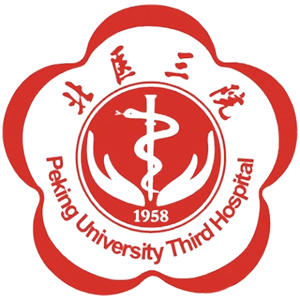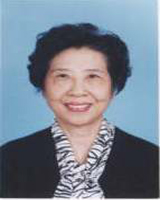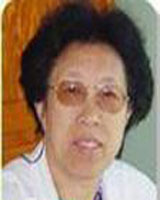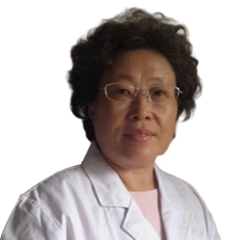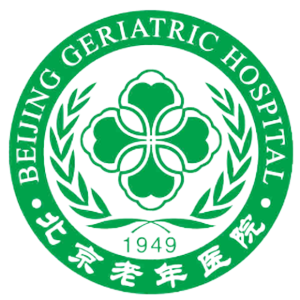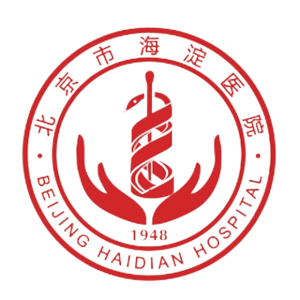神经内科
北京大学第三医院神经内科为医院重点发展科室,在康德瑄、李美琳等老一代专家的领导和樊东升等新一代学科带头人的不懈努力下,经过几十年的奋斗,在医、教、研等许多方面都已达到国内领先水平,部分领域趋于国际先进水平。目前科室分为门诊、病房、急诊、检查室等多个部门,并设有卒中单元、急诊卒中绿色通道等,拥有住院床位共105张,为广大患者提供了更多的就医机会和更好的治疗环境。近年来我科临床业务能力逐年提高,专业逐步细化,年门诊人数约13万余人次,急诊2万人次,年均出院人数约1100人次/年,平均住院日14.95天。
近年来,科室先后获评卫生部国家临床重点专科、北京市重点学科、教育部博士点学科和博士后流动站、国家级临床药理基地、国家卫生计生委脑卒中筛查防控基地医院、北京市专科医师培训基地等。在北京市DRGs(疾病诊断相关分组)专科排名名列前茅,主持的“神经内科学”课程被教育部评为国家级精品课程。主办了“北京大学卒中论坛”、“全国肌电图与临床神经生理学习班”等一系列有影响力的继续教育项目。获国家级和省部级科研基金近千万元;在国内外学术刊物上发表论文数百篇;与美国斯坦福大学、德国乌尔姆大学、澳大利亚昆士兰大学等国际知名大学建立合作关系。拥有世界上最大的运动神经元病单中心病例库,在该领域具有巨大的国际影响力。与神经外科、介入血管外科联合成立的脑血管病中心,在急性期静脉溶栓、机械取栓及二级预防管理方面积累了大量经验。作为“全国青年文明号”单位、北京市先进职工小家和北京大学模范职工小家,是全国医疗卫生系统的楷模之一。
神经内科现有职工64人,包括本科室在职医师31人,护士27人(正式在编15人,合同制护士12人),助理研究员1人,临床技师5人;其中高级职称23人,中级职称17人,博士学位28人;另有返聘教授/主任医师4名。科室人员年富力强、成员间专业互补,各有所长。我科拥有博士生导师4人、目前在岗1人,硕士生导师10人,目前在岗4人,是神经病学博士后工作站,迄今已培养研究生100余名。我科现设有运动神经元病、脑血管病、神经电生理、神经肌肉及遗传病、神经免疫、帕金森病、认知障碍、神经病理性疼痛及睡眠障碍等多个专业组,并有独立的神经电生理实验室和神经病理实验室,能够开展多项常规检查及特殊检查。近十年来,科室稳步发展,实力不断提升,2012年入选神经内科国家临床重点专科建设项目。我科特色专业为运动神经元病,拥有全国最大的运动神经元病诊疗和研究中心,在为广大患者提供更多就医机会的同时,也建成了全世界最大的单中心肌萎缩侧索硬化临床数据库和生物样本库,在国际上亦有较大的影响。我科充分发挥科室传统电生理研究的优势,注重传承,近年来相继培养了中青年骨干医生张朔、王娟、黄润州、蔡笑等。我科每年定期组织全国肌电图与临床电生理学习班,在全国范围内具有相当的学术影响力,且为我国电生理检查水平的提高贡献了自己的力量。另一方面,我科联合神经外科、介入科、超声科等学科,于2014年10月成立了“北京大学第三医院脑血管疾病诊治中心”,2015年4月被评为国家卫健委 “脑卒中筛查与防治基地医院”及“高级卒中中心”。
经过不断努力奋斗,北京大学第三医院神经内科现已经发展成为集医疗、教学、科研、护理为一体的现代化神经系统疾病临床诊治和学术研究中心,在全国神经病学学术界具有一定的影响力。所有这些成就的取得,离不开几代科室领导的运筹帷幄,离不开全科同仁的辛勤耕耘,离不开兄弟科室乃至全国同行的大力帮助,更离不开医院领导多年来始终如一的关心和支持。
The Department of Neurology is a key department of Peking University Third Hospital. Under the great effort of the old leaders, Prof. Kang Dexuan and Prof. Li Meilin, and the new leader, Prof. Fan Dongsheng, achievements in clinical work, academic research and teaching have reached top levels in China. The department include multiple sections, including outpatient clinics, inpatient wards with a total of 105 beds, an emergency section, examination rooms, a stroke unit etc. The annual numbers of outpatients and the emergency section are about 130,000 and 20,000, respectively. The average annual discharge is about 1,100 patients/year, with an average of 14.95 days in hospital.
Our department is a National and Beijing Key Clinical Specialty, a National Training Base for Doctors and Postdocs, a National Clinical Pharmacology Base, a National Stroke Screening Prevention and Control Base, a Beijing Training Base for Neurologists etc. The Neurology course taught by our staff was rated as a National Excellent Course by the Ministry of Education. The department has been funded with nearly 10 million yuan by national and provincial research foundations, and hundreds of papers have been published in domestic and international academic journals. We have established cooperation with internationally renowned universities such as Stanford University in the United States, Ulm University in Germany, and University of Queensland in Australia. We have the world's largest single-center database of motor neuron disease, with a significant impact in the field. The cerebrovascular disease center established jointly with the neurosurgery department and the interventional vascular surgery department has profound experience in thrombolysis, mechanical thrombectomy and secondary prevention management.
There are 64 employees in the department, including 31 doctors, 27 nurses, 1 assistant researcher and 5 clinical technicians. Our department has 4 doctoral supervisors (1 currently on duty) and 10 master supervisors (4 currently on duty), and we have trained more than 100 graduate students so far. Motor neuron disease is the strongest speciality of the department, with pronounced influence both domestically and internationally. In addition, multiple professional groups in other areas have been refined in recent years, including cerebrovascular disease, neuroelectrophysiology, neuromuscular and genetic diseases, neuroimmunology, Parkinson's disease, cognitive impairment, neuropathic pain and sleep disorders etc. We have a neuroelectrophysiology laboratory and a neuropathology laboratory, where a number of routine and special examinations can be carried out.
After continuous hard work, the Department of Neurology at Peking University Third Hospital has now developed into a modern diagnosis and treatment center for neurological diseases and an academic research center, integrating medical treatment, teaching, scientific research and nursing. We are dedicated to further boost our influence in the field and provide outstanding medical service for more patients.
科室医生
查看全部推荐阅读
- 2025-07-29哺乳期荨麻疹大爆发怎么回事怎么办
- 2025-07-31五岁孩子流鼻血怎么回事
- 2025-07-28瘢痕妊娠的早期症状有哪些
- 2025-07-28硬腭疼痛怎么回事,怎么办
- 2025-07-30血便是什么原因引起的
- 2025-07-29湿热入血有什么症状
- 2025-07-29鼻痛的原因是什么
- 2025-07-30逆行性牙髓炎的常见病因是什么
- 2025-07-28溶血症是怎么回事,症状有哪些
- 2025-07-27干燥综合症为什么龋齿



